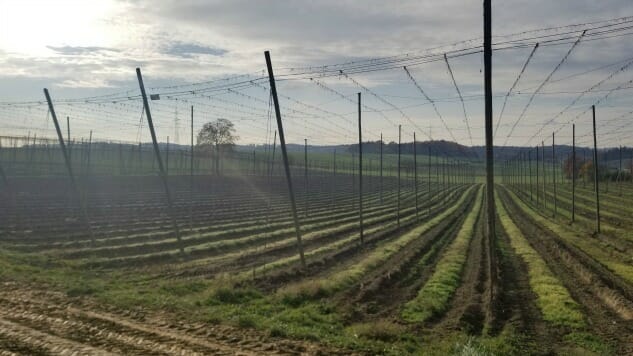What It’s Like to Select Hops With Jim Koch from Sam Adams

The first thing you notice when driving into the Halleratu region of Germany is the hops, or the hop fields in my case.
In early November, I traveled to Bavaria with the team from Sam Adams. Our mission: to select the hops for Sam Adam’s iconic Boston Lager.
Sam Adam’s founder Jim Koch has been coming to the region to do hop selection for the beer for 32 years, a move that’s become unique in the brewing industry.
-

-

-

-

-

-

-

-

-

-

-

-

-

-

-

-

-

-

-

-

-

-

-

-

-

-

-

-

-

-

-

-

-

-

-

-

-

-

-

-











































